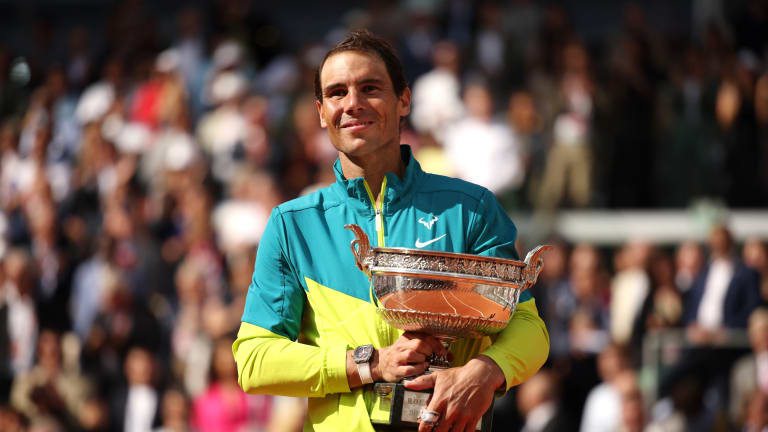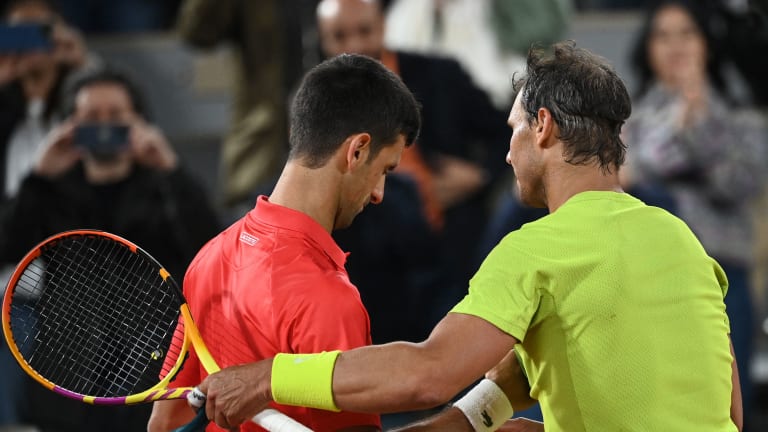Top 5 ATP Players of 2022, No. 2: Rafael Nadal
By Dec 15, 2022The Baseline Awards: Tearjerker Moment
By Dec 22, 2022The Baseline Awards: Biggest Question Mark
By Dec 21, 2022The Baseline Awards: Patriotic Performance
By Dec 20, 2022The 2022 Baseline Awards: Dual Threats
By Dec 19, 2022Top Fashion Moments of 2022: When Serena Williams twirled away in a diamond-encrusted dress
By Dec 17, 2022Top 5 ATP Players of 2022, No. 1: Carlos Alcaraz
By Dec 16, 2022Top Fashion Moments of 2022: When Jelena Ostapenko made you lewk
By Dec 15, 2022Top Fashion Moments of 2022: Is Casper Ruud the style heir to Roger Federer?
By Dec 14, 2022Top 5 ATP Players of 2022, No. 3: Novak Djokovic
By Dec 14, 2022Top 5 ATP Players of 2022, No. 2: Rafael Nadal
On balance, Rafa’s performance in 2022 likely will be looked upon as an epic of the Open era due to inhibiting factors in play all year.
Published Dec 15, 2022
Advertising
!["I never will say I deserve [this win], because I think a lot of people fight and a lot of people deserve," Nadal said about the significance of his second Australian Open title. "But I really believe that I hold a very positive spirit."](https://images.tennis.com/image/private/t_16-9_768/f_auto/tenniscom-prd/ymkozytpfbkzdpsgahtq.jpg)
"I never will say I deserve [this win], because I think a lot of people fight and a lot of people deserve," Nadal said about the significance of his second Australian Open title. "But I really believe that I hold a very positive spirit."
© TENNIS AUSTRALIA
Advertising
Advertising
Advertising
Advertising

Nadal is now 104-1 in his career at Roland Garros against players who aren't ranked No. 1, the only loss coming to No. 25-ranked Robin Soderling in 2009.
© 2022 Getty Images
Advertising

Nadal's win over Djokovic was his 23rd career win over a No. 1. No one else even has 20 career wins over No. 1s since ATP and WTA rankings began in the 1970s.
© AFP via Getty Images